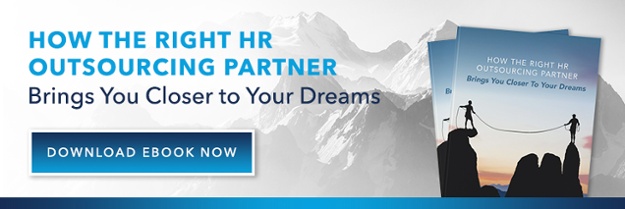
An empty spreadsheet, a cluster of unanswered emails, a queue of eager new hires awaiting their first day — sound familiar? Welcome to the dynamic world of human resources. Fortunately, the digital age has brought innovative solutions such as Human Resources Information Systems (HRIS) and Professional Employer Organizations (PEO), that transform how in-house HR operates.
These robust solutions simplify processes from talent acquisition to employee retirement. However, the dilemma often arises - should you invest in an encompassing HRIS or engage with a PEO?
But is this even a genuine dilemma?
Unpacking these two alternatives, understanding their applications, and exploring their unique advantages lead to some intriguing discoveries. 
What is HR Software?
HR software, another name for an HRIS, is a platform or suite of applications that help streamline and automate human resources operations, tasks, and processes. This includes but is not limited to, areas like:
- Payroll management,
- Benefits administration,
- Talent acquisition,
- Employee onboarding.
When it comes to the nitty-gritty of HR tasks, the right HRIS is like the trusty Swiss Army knife in your administrative toolkit. For instance, a feature like an all-in-one payroll software can automate the often time-consuming process of managing employee compensation. It ensures that everyone is paid accurately and on time, allowing your HR team to focus on other pressing tasks.
Similarly, self-service employee benefits enrollment features empower employees to manage their own benefits. This eases the burden on HR departments and promotes employee satisfaction, as they have control and transparency over their benefits package.
Yet, HR software isn't without its limitations. While it can provide the technology that enables employees to self-select benefits, it doesn't inherently provide access to healthcare plans or other employee benefits. This means your company still needs to locate vendors at a competitive rate. This essential supplementary work can sometimes make HR software feel less like a comprehensive solution and more like a tool requiring additional resources.
What is a PEO?
A Professional Employer Organization, commonly known as a PEO, is a firm that provides comprehensive HR solutions to businesses, acting as a co-employer in a model where they take on many of the responsibilities of being an employer while the client company continues to direct the employees' day-to-day activities. This role allows the PEO to handle complex HR tasks such as payroll, benefits administration, compliance management, and more.
A PEO's blend of HR software solutions and administrative services creates an enhanced user experience. This unique mix of high-tech software and hands-on HR administration enables the in-house HR team to focus on essential tasks such as talent acquisition and employee engagement.
One significant advantage of a PEO is its role as the employer of record. This arrangement allows the PEO to manage payroll and taxes using their Federal Employer Identification Number, taking the weight of these complicated tasks off your team’s shoulders.
A PEO also presents a cost-effective way for companies to offer high-quality benefits. By pooling all of their client companies' employees, a PEO can leverage its size to negotiate better rates on benefits such as health insurance and retirement plans. This structure enables your business to offer the high-level benefits that employees desire without stretching your budget thin.
Lastly, a PEO plays a pivotal role in compliance management. With labor laws continually evolving, keeping up can feel like an uphill battle. Partnering with a PEO can help mitigate the risk of costly compliance violations and payroll errors, providing peace of mind that your business is operating within the law.
Until now, PEOs and HRIS have been portrayed as an either-or option.
However, the truth is that best-in-class PEOs provide state-of-the-art HR software at no additional charge.
Why Use a PEO's HRIS?
A PEO's HRIS combines the efficiency of HR technology with the human touch of HR services. It provides a single platform where businesses can manage their human capital effectively. With capabilities ranging from applicant tracking to employee onboarding, and from time and attendance tracking to performance management, a PEO's HRIS is a one-stop shop for HR needs.
More importantly, a PEO's HRIS is not a standalone system. It's seamlessly integrated with the services that the PEO provides. Picture this: benefits administration, compliance management, and employee engagement - all tied together on a single platform. Such integration offers businesses the efficiency they need to focus on what matters most - their core operations.
In addition, many PEOs provide HR software solutions at no additional charge. Think about it - top-notch benefits, payroll processing, and labor law compliance services all under one roof.
But there's more to a PEO's HRIS than just cost savings and efficiency. It's also about giving employees a better experience. An intuitive and easy-to-use HRIS can improve employee satisfaction and retention. After all, a happy employee is a productive one.
Choosing a PEO's HRIS is about more than just HR software. It's about a holistic solution that addresses a company's HR needs while also providing a superior employee experience.
.jpg)
Brandon Hartsaw
Acting as the Chief Operations Officer, Brandon actively promotes an environment of creativity, collaboration, and individual ownership to empower Questco team members to deliver exceptional client experiences.



